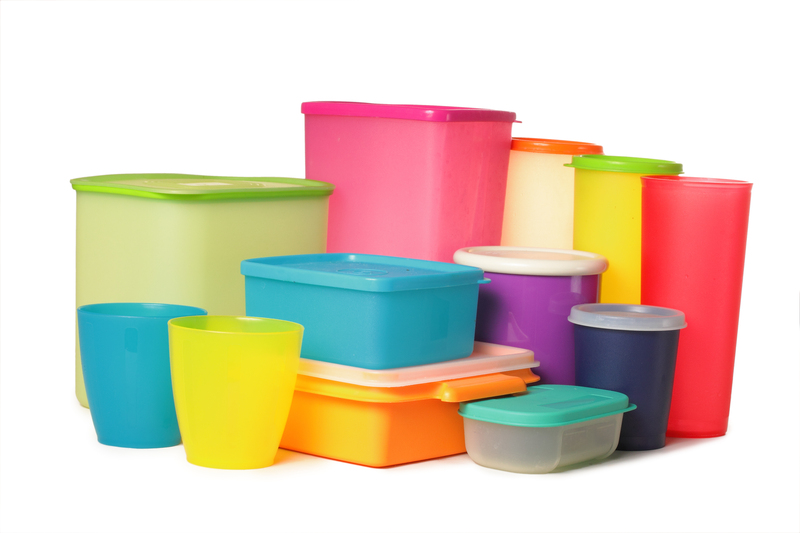Sustainable Shopping: Tips for Buying and Storing Food to Reduce Waste and Save Money
Posted on 10/09/2024
In today's world, where environmental sustainability and cost-cutting are major concerns, sustainable shopping has become more important than ever. One major aspect of sustainable shopping is reducing food waste, as it not only helps the environment but also saves you money. According to the United Nations, around one-third of the food produced globally goes to waste every year. This is a staggering statistic that highlights the urgent need for individuals to make conscious decisions while buying and storing food. In this article, we will discuss some tips for sustainable shopping that can help reduce food waste and save you money in the long run.
Tips for Buying Food Sustainably
1. Plan Your Meals: Before heading to the grocery store, plan out your meals for the week or at least a few days in advance. This will help you buy only what you need and avoid overspending on unnecessary items.
2. Make a List: A shopping list is essential to avoid impulse buying and sticking to your meal plan. Be sure to check your pantry and fridge before making a list so that you don't end up buying items you already have.
3. Buy Seasonal Produce: Buying fruits and vegetables that are in season not only ensures their freshness but also supports local farmers and reduces the carbon footprint caused by importing produce from other countries.
4. Choose Loose Over Packaged Goods: Whenever possible, opt for loose produce instead of pre-packaged ones. This reduces unnecessary packaging waste and allows you to buy only the amount you need.
5. Look for Sustainable Packaging: If you do need to buy packaged goods, choose products with sustainable packaging such as glass jars or paper-based materials rather than plastic. These can be easily recycled or reused.

Tips for Storing Food Sustainably
1. Use Reusable Containers: Instead of using disposable plastic bags or wrap, invest in reusable containers for storing leftovers and meal prepping. This not only helps reduce waste but also saves money in the long run.
2. Store Food Properly: Knowing how to properly store different types of food can significantly extend their shelf life. For example, fruits and veggies should be stored in the fridge, while root vegetables like potatoes and onions can be kept in a cool, dark place.
3. Freeze Excess Food: If you have leftovers or excess produce that you won't be able to use before it spoils, freeze it! This ensures that the food doesn't go to waste and is ready for use when you need it.
4. Use Up Scraps: Get creative with leftovers or scraps by using them in other dishes. For example, vegetable peels can be turned into broth or leftover rice can be transformed into fried rice.
5. Donate Excess Food: If you find yourself with too much food due to overbuying, consider donating it to a local food bank or shelter instead of letting it go to waste.
The Pros and Cons of Sustainable Shopping
Pros:
1. Reduces food waste, which helps the environment by reducing greenhouse gas emissions from landfills.
2. Saves money by buying only what is needed and using up leftovers instead of throwing them away.
3. Supports local farmers and businesses by choosing seasonal produce and sustainable packaging options.
Cons:
1. Requires more planning and effort compared to traditional shopping methods.
2. May limit options as not all products may have sustainable packaging or be in season.

Takeaways
Sustainable shopping for food requires a mindset shift and conscious decision-making. It may take some time to get used to, but with practice, it can become a part of your everyday routine. Remember these key takeaways:
1. Plan meals and make a list before heading to the grocery store.
2. Choose loose produce over pre-packaged goods and look for sustainable packaging options.
3. Store food properly and use up leftovers and scraps.
4. Consider donating excess food to those in need.
Conclusion
In conclusion, sustainable shopping for food is not only beneficial for the environment but also for your wallet. By following these tips, you can reduce food waste, save money, and make a positive impact on the planet. Remember that small changes in our shopping habits can have a big impact in the long run. Let's all do our part in creating a more sustainable future through responsible shopping practices.
Latest Posts
Alternatives to Common Plastic Items
Recycling Strategies for Non-Compostable Garden Materials






